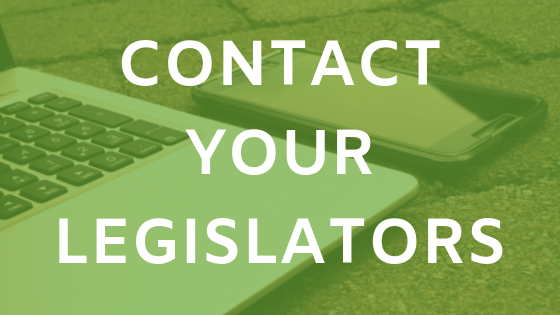
This blog post is by James Biggers, a member of OSBHA Student Health Advocates.
If you’re anything like me you have a lot of opinions. Many of those opinions relate to the well-being of ourselves, our friends and family, and our society as a whole. As a result we feel passionately and struggle with frustration if we feel as if there is nothing we can do to change the state of things. Fortunately one of the most impactful actions we’re capable of is remarkably simple. And if you haven’t read the title of this piece I’m speaking about contacting your legislative representatives. But first a quick aside: In this piece I’m going to use the term representative a lot even though it might be most correct to distinguish between representatives in the House of Representatives and the Senators in the Senate but I won’t because that sounds like a pain. Just know that they serve similar roles but aren’t exactly the same. As for this exercise this difference becomes a bit relevant later but I’ll let you know when that happens.
Getting into contact with politicians, if it’s something you’ve never done before, can feel like a daunting task. What avenue will most likely get their attention? Is there a format I should follow? Where do I send my letter/email? What number do I call? Will they even care? There are many different issues to worry about and as someone who worries about everything I do in my life I can understand the struggle on a personal level. Fortunately these worries are nothing more than that and I’ll prove it by first walking you through the logistical side of things. Let’s start from the top.
Step one is to find something you care about. This is the easiest part I would imagine as you probably wouldn’t be here if you didn’t have something you cared about. For my example I’m going to be using a few bills the Oregon School Based Health Alliance (OSBHA) has had a hand in putting together this legislative session. Those bills are Senate Bill (SB) 130. In short they allow healthcare practitioners in schools to provide telehealth. Telehealth is essentially healthcare over Skype/Facetime/whatever means you have that doesn’t have to be in person. And if you don’t have a specific bill that supports your ideas, don’t fret, it’s not something you always need. It certainly doesn’t hurt but simply having an idea is enough to get started.
Step two is figuring out who you even need to talk to. The most important people to get in contact with are those who represent the district you live in. But how do you go about finding your representatives? That’s actually pretty easy. Go into the Google machine and type “Find my legislator (insert state name here)” and click on the first link that isn’t an advertisement. Now I didn’t check to make sure every state had a legislator lookup but if Wyoming has one I’m sure your state does*. All you need to do is enter your address and bam you’ll get your representative from the House as well as your state Senator. It might even give you your congressperson as well but for this we’re going to focus mostly at the state level. For example, my Representative is Rob Nosse and my Senator is Kathleen Taylor. And at least for Oregon’s legislator lookup it also gives you their email, mailing address, and phone number, how convenient! But what is the most effective method to get your idea across?
Step three is choosing a method of contact. I’ll even give you a hint: it’s probably most correct to send an email. Why is that? Well to compare email and snail mail they both get your ideas across in similar ways. However, a vast majority of political work is done digitally and they have more ability to track, organize, and store emails. However, if you’re in a situation where you can get a large group of people together and send letters en masse the sheer physical volume will make a bigger impact than sending multiple emails. Phone calls are more personal but again it can be difficult to catalogue phone conversations. Emails also offer more chance for correspondence. If your goal is to have a face-to-face meeting with one of your legislators, email is the way to go. Also alongside a written email consider recording and attaching a video to your email! It adds a face to the name and makes the message much more personal and meaningful. A big part of getting your message across effectively is standing out and a video will pull a massive amount of weight in that department.
I feel it’s important to add a bit of a caveat here because there is a chance that you won’t be speaking directly with your legislator, you’ll be speaking to their staff. Now you might ask me “But James what good will that do? Staff members? I don’t want to talk to those grunts, I want to talk to the person making the decisions around here!” And I don’t necessarily blame anyone who feels that way at first. However that line of thinking tends to come from a bit of a misunderstanding about the importance of legislative staff. Staff members are more like extensions of the politician that they work for. They are in full control of their schedule, including appointments, understand where they stand on most topics, and do a lot of the heavy lifting and research. Many times they will be more knowledgeable on an idea than your representative! Also don’t be afraid of them ignoring you. I have met others who feel that they will be brushed to the side for petty reasons but in my experience that is not the case. Staff members are professional and respectful and unless you’re swearing up a storm like a rambling maniac they will listen and pass on your message.
Step four is to actually do the thing. If you’ve made it this far congratulations you’ve probably read more than I would have if I were in your spot, but now it’s time to craft our message. Let’s make sure I have everything I need.
I have my issue(s) SB 130.
I have my Senator Kathleen Taylor and Representative Rob Nosse (Remember how I said the difference between Senator and Representative would become relevant later on? This is the time. When speaking to them it’s important to get the distinction correct).
I know that I’m going to email them. Maybe make a video too!
I can feel confident knowing that my message will be heard. So how am I to do this? Here’s an easy outline to get you started:
Hello/Greetings/Good Afternoon etc. Representative Representative’s Name/Senator Senator’s Name
Introduce yourself! Give your name, a general area for where you live, and a few things about yourself. Maybe mention how long you’ve lived there, whether or not you’re going to school, your occupation, anything that can help them connect with you as a person. Next tell them what you’re in support of. Don’t worry about detailing the idea yet that will come later. Next detail the problem within your community your idea will fix and if it affects you directly let them know how it does! Finally let them know how exactly your idea will help fix the problem. End with a cordial thank you and you’re done, just like that. And remember you don’t need to overthink it and stress out too terribly. You’re a smart person and you should trust yourself to do a good job. Here is my example.
Greetings Representative Rob Nosse,
My name is James Biggers and I currently live in the Reed neighborhood but I’ve lived in the SE quadrant of Portland for most of my life. I split my time between my restaurant work and my work with the Oregon School Based Health Alliance to support youth health. I’m writing you today in support of SB 130. Students every day go to school afraid to seek help because many schools have staff members who don’t have the proper training to help students who have experienced trauma effectively. Along with that there are students who are unable to effectively get the healthcare they might need because of the barriers they face in being physically present for their providers. This bill helps to aid in these endeavors by allowing for the practice of telehealth. The telehealth practice allows providers to provide what services they can remotely access through video chatting and bridges the transportation or lack of provider access barrier which may prevent some people from seeking care. I believe that investing to help care for individuals is imperative to creating a healthier, well-educated and flourishing society and I hope that you will stand with me in support of this bill.
Thank you for your time,
James Biggers
*Sorry Wyomingites. You’ve got some killer national parks.

